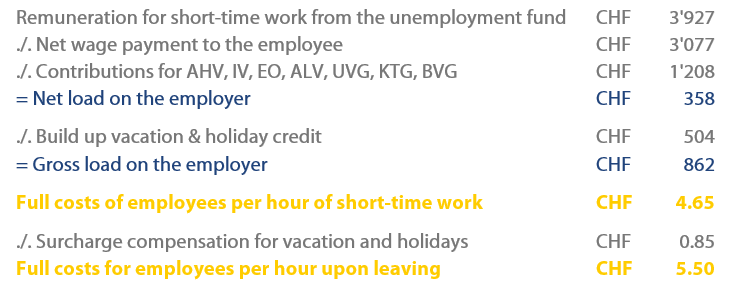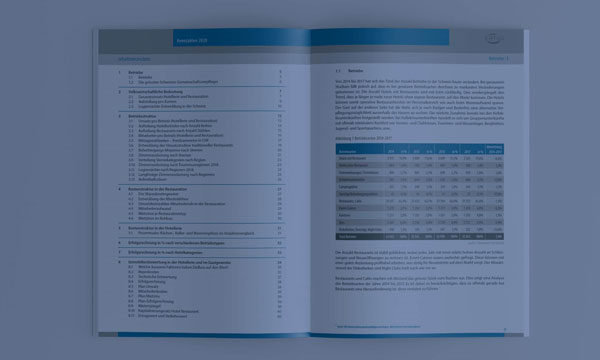Short-time work: Cost of an employee

A successful entrepreneur in the hospitality industry has always had to be able to calculate. One of the questions that we have been asked repeatedly about short-time work in recent months was: "What wage-costs do I have to bear as an employer for an employee during short-time work? Our calculation shows: an employee costs the employer CHF 4.65 per hour, CHF 40 per day, CHF 862 per month or CHF 10'350 since the lockdown a year ago.
#Finanzen, #KATAG, #Klarheit, #Treuhand
Even before the Corona crisis, many hotel and restaurant operators had to struggle with rising operating costs, lesser revenue and insufficient demand.
The wage costs that incurs additionally for the employer during short-time work make things even more difficult. The basis for our calculation is that the employee does stay at home during short-time work and agrees to the wage reduction of 20%.
As an example, we take a waitress who is employed with the usual insurance benefits for the minimum gross wage of CHF 4’550 (including the 13th monthly wage). This results in the following monthly calculation:

The employer therefore incurs wage costs of CHF 4.65 per hour of short-time. If she leaves, this amount increases to CHF 5.50 (including supplement for vacation and public holidays). This means that the employer has to pay wage costs of around CHF 40 per day (8.5 hours), CHF 862 per month and CHF 10’350 per year. With a gross monthly wage of CHF 5’000, the amount increases by around 20%.
In order to be able to act immediately in the event of a reopening, many hoteliers and restaurateurs have been maintaining their minimal workforce for months. You pay the difference between the compensation from the unemployment insurance fund and the actual wage costs out of your own pocket. There can be several reasons for this: out of loyalty to the team, in the hope of opening up soon and perhaps also to have a competitive advantage through a well-established team.
The calculation of the wage costs incurred by the employer - in our opinion considerable - clearly shows that quite a few companies in the hotel and catering industry are dependent on a clear and rapid regulation and payment of hardship benefits in order to secure their existence. This is needed in addition to short-time work compensation and possible rent reductions.







